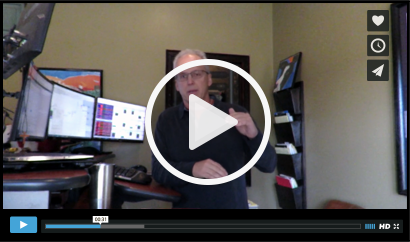Can you clarify for me the following? 1. Do you collect the dividends paid on a stock when you short sell the stock? 2. Do you collect the dividends paid on a stock when you buy the puts for the stock? 3. What is the best source to find out what the ‘owners of record’ date is to be eligible for a dividend payment?
You are looking into dividends no doubt in part to the proposed elimination of the double dividend tax. That will allow dividends to become something worth capturing as the modest gains will not be eaten up by your income tax rate. We have considered a dividend capturing service for quite some time, and if this bill looks as if it will pass with a 50% or better reduction in the tax, then we are looking at putting such a service together. The idea is to take a fixed amount of money and chart out when dividends are paid by solid companies. You then buy the stock on the record date and then immediately sell it, using the clearing period to go after the next stock paying the next dividend. The idea is to get as many good prospects as possible lined up one after the other and roll that money from one to the next, capturing the dividend using the ‘float’ to do it.
As for the specifics of your question, you do not collect on a stock you short sell. You don’t own the stock; you borrow it and sell it. You have to be able to deliver it upon demand. As you are not the record owner, no dividend. Puts are an option on stock, not ownership. You have to exercise the option to gain record title. A put is the right to sell stock to someone at a certain price (you ‘put’ the stock to them). Again, unless you buy the stock, you do not own it. Finally, you can find the owner of record date at the company website. We have reviewed a few dividend information sources, but we have found significant errors making them somewhat unreliable for this important information. If we find a better clearinghouse we will let you know.

